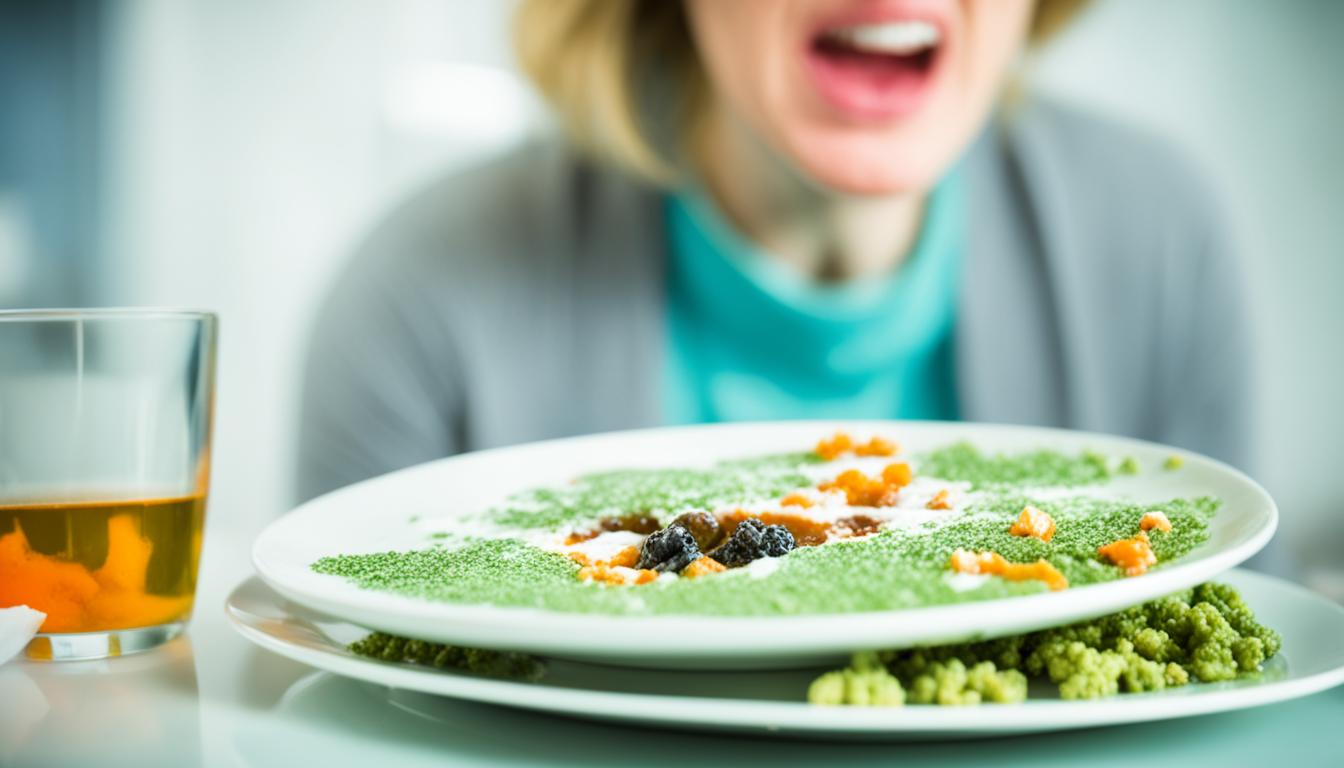Food poisoning is an illness you get from eating food that’s not safe to consume. You may feel sick to your stomach, have diarrhea, and even find it hard to breathe. This sickness often starts soon after eating, and it can spread to others who ate the same food.
The signs of food poisoning can be different depending on what caused it. This could be bacteria, viruses, or harmful substances in the food. If the sickness is very bad, it can be dangerous and needs a doctor’s care. To stay safe, handle, store, and cook food the right way.
Sometimes, doctors might suggest using stem cells to help the body heal from food poisoning.
Key Takeaways:
- Food poisoning comes from eating food that’s gone bad, causing symptoms like throwing up, having a bad stomach, and pain.
- Following safe food practices helps stop food poisoning from happening.
- Bad food sickness can be serious and needs quick medical care.
- Stem cells could be a cutting-edge way to treat food poisoning.
- Seeing a doctor is crucial for finding out what’s wrong and getting the right treatment.
Recognizing the Symptoms of Food Poisoning
It’s important to know the signs of food poisoning. The top ones are tummy pain, throwing up, and needing the bathroom a lot. These usually happen right after eating something bad.
Your stomach hurting a lot can mean food poisoning. The pain can be light or strong and feel like cramps. It’s usually around the tummy area and might get worse with movement.
Throwing up is your body trying to get rid of the bad stuff. It can help you feel better but too much can make you really thirsty or dizzy.
When you go to the bathroom a lot with watery poop, that’s diarrhea. It sometimes comes with throwing up and both can make you lose too much water. The body does this to fight off the sickness.
You should also look for clues in the food like a bad smell or look. Finding bugs or other non-food things in it is a big warning sign, too.
Severe Cases and First Aid for Food Poisoning
Sometimes, food poisoning can be very bad, leading to severe dehydration and other health issues. If someone is very dehydrated, they might be super thirsty, have a dry mouth, feel dizzy, or have dark pee.
If someone has food poisoning, helping them get rid of the bad food by throwing up might be okay. But always check with a doctor first to make sure it’s the right thing to do.
Drinking lots of water is key to recovering from food poisoning. It replaces the fluids you’ve lost and can make you feel better. If things don’t improve, getting help from a doctor is a good idea.
Knowing the symptoms helps you act fast and get better sooner. It also shows the importance of being careful with food. Good habits in handling and preparing food can stop food poisoning.
Differentiating Food Poisoning Abdominal Pain from Other Types of Stomach Pain
Food poisoning makes your stomach hurt in a unique way. You might feel sick, throw up, and get diarrhea soon after eating bad food. This sets it apart from other stomach pains.
Appendicitis shows up differently. Its pain gets worse slowly and stays in the right lower belly. If you’re constipated, your pain might come and go in the middle or left belly.Indigestion from eating certain foods brings bloating and may make you burp.
Irritable bowel syndrome causes pain, bloating, and up and down bathroom habits. Kidney stones hurt a lot, starting in the back and moving to the belly and thighs.
Other than food poisoning, many things can make your stomach ache. Some include infections and diseases like Crohn’s or gallstones. For a right diagnosis and treatment, see a doctor.

